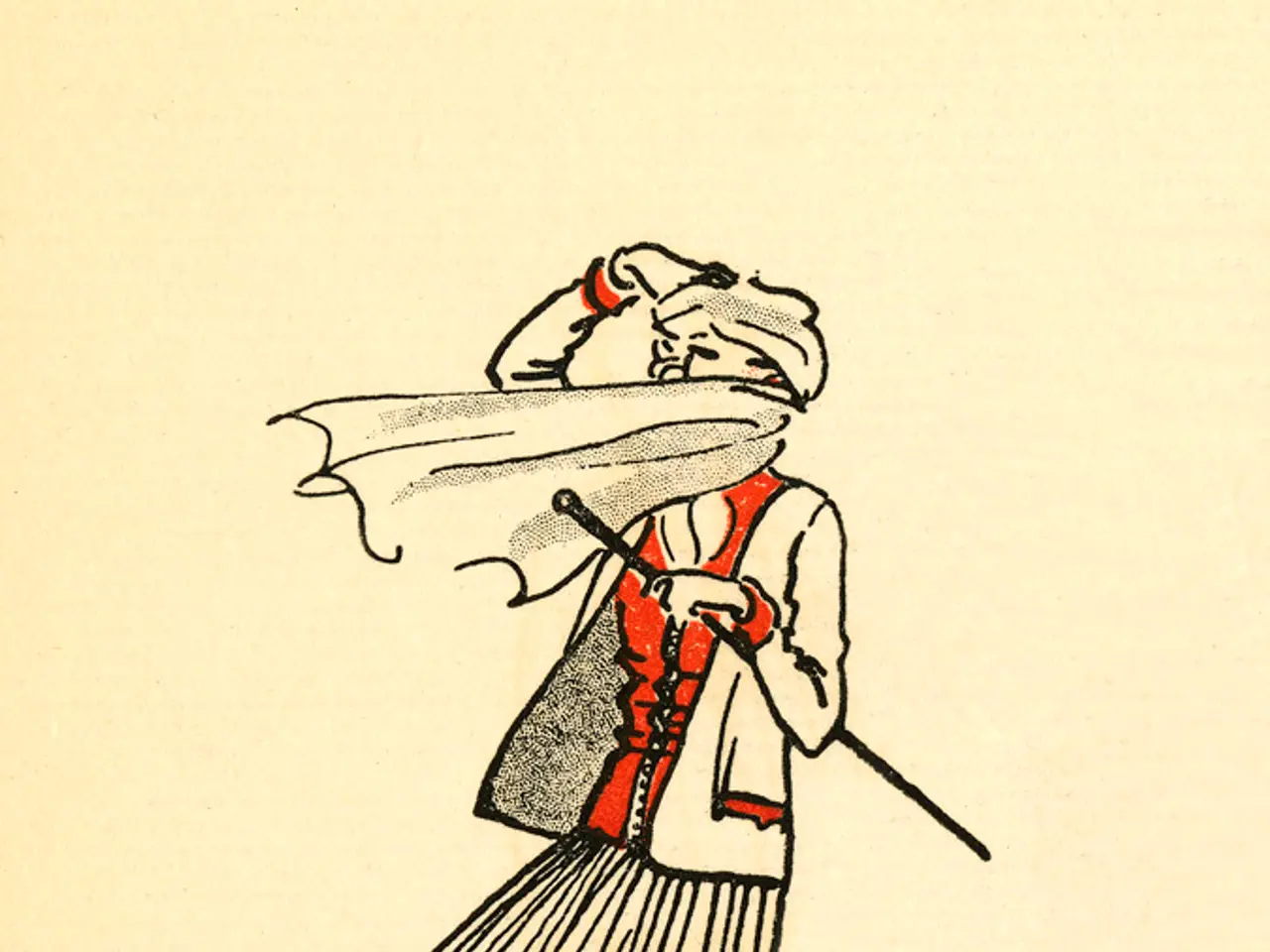Treatment of Scars on Darker Skin Tones: Do They Dissipate?
Black skin requires special care when it comes to scar treatment, especially for acne and eczema scars. The focus is on preventing pigmentation issues while improving scar texture and appearance. Here's a rundown of the key treatments that have proven effective.
Microneedling: The Star Treatment
Microneedling, a minimally invasive procedure, is highly recommended for Black skin. It remodels scar tissue, stimulates collagen production, and gradually softens acne scars without causing the pigmentation issues common in laser treatments. Additionally, it improves hyperpigmentation and skin texture by promoting healthy cell growth.
Sunscreen: Your Daily Armour
Daily use of broad-spectrum SPF 30 or higher sunscreen is essential to prevent scars, especially acne scars, from darkening due to UV exposure. This is critical in darker skin tones where post-inflammatory hyperpigmentation (PIH) is a concern.
Gentle Exfoliation: Speeding Up Recovery
Using mild chemical exfoliants like AHAs or BHAs two to three times weekly helps speed skin cell turnover and fade dark spots while avoiding irritation that can worsen scars or pigmentation issues.
Topical Brightening Agents: Fading Hyperpigmentation
Vitamin C and tranexamic acid, when combined with microneedling, enhance the reduction of hyperpigmentation and improve skin tone in darker skin.
Steroid Injections: For Certain Raised Scars
Steroid injections can reduce thickened scar tissue by breaking up collagen fibers, a non-invasive method though it may require several sessions.
Laser Therapy: With Careful Precautions
Laser therapy can be effective for scar removal, but it must be used cautiously in Black skin due to the risk of pigmentation changes. Specialized laser types and careful application can reduce the risk and help with old darkened scars.
Preventive Medication: Stopping Scar Formation at the Source
In cases of severe acne, oral treatments like Accutane can reduce sebum, inflammation, and promote cell turnover, preventing the formation of scars in the first place.
Managing Eczema Scars
Though specific treatments for eczema scars in Black skin were not detailed in the search results, gentle skincare to prevent inflammation and hyperpigmentation, combined with treatments that promote collagen remodeling (like microneedling), are generally advisable for minimizing scarring in eczema as well.
In summary, a regimen consisting of microneedling combined with strict sun protection, gentle exfoliation, and topical brighteners represents a safe and effective approach for managing acne and post-inflammatory scars in Black skin while preventing worsening pigmentation. More invasive options like steroid injections and laser therapy require careful professional guidance to avoid adverse pigmentation changes. Early intervention with medications such as Accutane can also prevent scar formation in severe acne.
- In the context of skincare, microneedling is particularly beneficial for Black skin, as it addresses acne and eczema scars without causing pigmentation issues common in laser treatments.
- The daily use of broad-spectrum SPF 30 or higher sunscreen is crucial in preventing scars, especially acne scars, from darkening due to UV exposure, especially in darker skin tones.
- Mild chemical exfoliants like AHAs or BHAs can help speed up skin cell turnover in Black skin, fading dark spots and avoiding irritation that can worsen scars or pigmentation issues.
- Vitamin C and tranexamic acid, when combined with microneedling, can enhance the reduction of hyperpigmentation and improve skin tone in darker skin.
- Steroid injections may be used to reduce thickened scar tissue, though care should be taken as it may require several sessions and can pose a risk for pigmentation changes in Black skin.
- Laser therapy can be effective for scar removal, but its use in Black skin must be done with caution to avoid pigmentation changes due to the risk of such alterations.
- Oral treatments like Accutane can reduce sebum, inflammation, and promote cell turnover in severe acne cases, thus preventing the formation of scars.
- In terms of eczema scars, developing a skincare regimen that is gentle, prevents inflammation, and promotes collagen remodeling (such as microneedling) is generally advisable for minimizing scarring in eczema as well.




